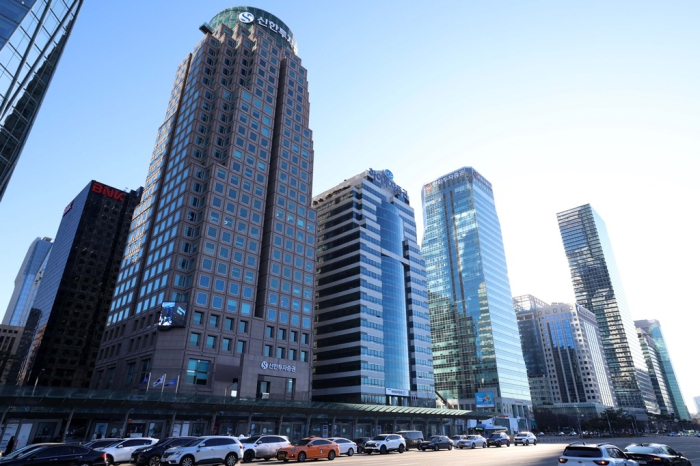Earnings
Weak property market cuts into Korean securities firms’ profits
South Korea’s financial regulator plans to guide local securities firms to prepare sufficient provisioning against property PF risks
By Mar 25, 2024 (Gmt+09:00)
1
Min read
Most Read
LG Chem to sell water filter business to Glenwood PE for $692 million


KT&G eyes overseas M&A after rejecting activist fund's offer


Kyobo Life poised to buy Japan’s SBI Group-owned savings bank


StockX in merger talks with Naver’s online reseller Kream


Meritz backs half of ex-manager’s $210 mn hedge fund


dd

South Korea’s securities firms suffered a 20% fall in overall net profit last year hurt by the weak property market, adding to bearish views on the domestic brokerage industry amid the sustained slump in the real estate sector.
The total net income of 60 South Korean securities firms dropped 20.2% to 3.6 trillion won ($2.7 billion) excluding 2.2 trillion won in the one-time dividend income of Korea Investment & Securities Co. and Daishin Securities Co. in 2023, according to the Financial Supervisory Service (FSS) on Monday.
The net income of the 60 companies totaled 4.5 trillion won in 2022, less than half the 9.1 trillion won in 2021.
“It is likely to take more time for securities firms’ profits to rebound as the property market is not out of the woods this year and it is uncertain when the policy interest rate will be lowered,” said an official of the financial regulator.
The FSS plans to check the impact on securities firms of losses from real estate project financing (PF) and overseas alternative investments while guiding those brokerage houses to prepare sufficient provisions.
Their other asset-related income already fell 17.1% to 3.1 trillion won last year as securities firms reflected massive provisions against risks of property PF.
DROP IN IB INCOME
The industry’s commission income slid 10.1% to 11.7 trillion won last year as investment banking commissions shrank 32.3% to 3.3 trillion won with commissions for guarantees of real estate PF obligations down, the FSS said.
Brokerage commissions rose 10% to 5.5 trillion won as trading volumes in the local stock market increased, on the other hand.
Their proprietary trading income nearly tripled to 9.2 trillion won as bond-related income skyrocketed to 13.2 trillion won from 614.8 billion won.
The highly liquid three-year South Korean government bond yield fell 57 basis points to 3.15% at the end of 2023 from a year earlier.
Meanwhile, local securities firm’s aggregate assets grew 13% to 686.9 trillion won in total as of end-2023, while their average net capital ratio, a financial soundness indicator, rose by 30.3 percentage points to 734.9%.
Write to Ik-Hwan Kim at lovepen@hankyung.com
Jongwoo Cheon edited this article.
More to Read
-
 Real estateKorean real estate firms put up for sale amid lasting market downturn
Real estateKorean real estate firms put up for sale amid lasting market downturnMar 12, 2024 (Gmt+09:00)
2 Min read -
 EconomyKorea’s inflation rebounds, BOK to keep interest rates in H1
EconomyKorea’s inflation rebounds, BOK to keep interest rates in H1Mar 06, 2024 (Gmt+09:00)
1 Min read -
 Real estateGlobal property market plunge hits Korean financial firms
Real estateGlobal property market plunge hits Korean financial firmsFeb 19, 2024 (Gmt+09:00)
2 Min read -
 Real estateWeWork’s downsizing plan in Korea to hit office market
Real estateWeWork’s downsizing plan in Korea to hit office marketJan 15, 2024 (Gmt+09:00)
2 Min read -
 Real estateKorean office, warehouse transactions plunge in Q1-Q3
Real estateKorean office, warehouse transactions plunge in Q1-Q3Dec 27, 2023 (Gmt+09:00)
1 Min read
Comment 0
LOG IN


